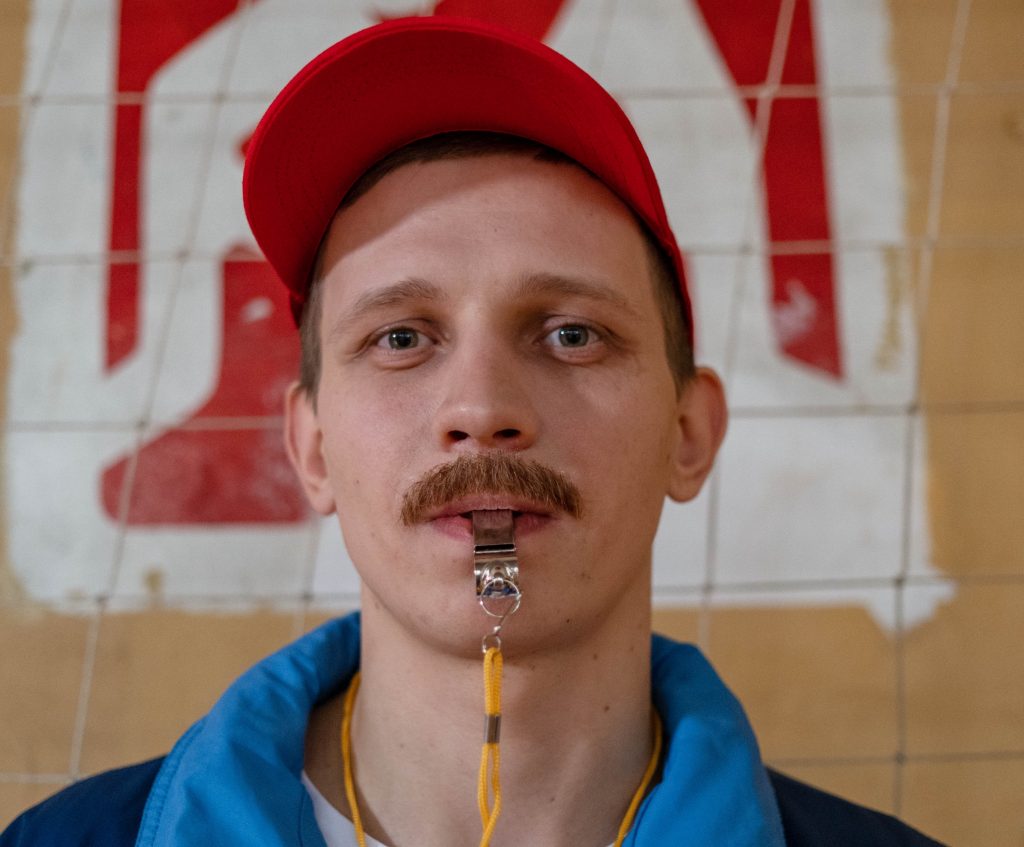I’ve learned a lot from my first year of coaching and made a short list of some of the things I hear again and again. Despite the fact that people’s paths and destinations are very different, we are all connected by the symptoms of ADHD. The tools and the realizations we need to go through are very similar and we can learn a lot from our shared experience. I’m sure there will be many more, so leave your thoughts in the comments. Here are a couple of things that might be part of your treatment journey.
“I’ve tried everything.”
I feel this way when I’m frustrated by the same failures over and over again, no matter what I do. It feels like nothing is changing and I’m tired. If I fail to switch tasks after my timer goes off, I might tell myself that, “timers just don’t work for me” and stop trying.
But that’s obviously ridiculous. Nothing is going to work every time, especially if I give up almost immediately. In this case, past outcomes aren’t always predictive of future outcomes.
Turn it into a positive statement. “I haven’t tried everything.” Rather than a bleak statement of surrender, this statement is a challenge.
“I haven’t tried everything. Ok, what’s next? How can I try something again, but get better results?”
Keep trying and you will discover your own unique solutions for your unique situation. Get creative. Cultivate a resilient attitude. You’ve got to go through the “no’s” to reach your “yes.” Until you get there, you haven’t tried everything.
“I can’t motivate myself. I just end up distracted.”
It is difficult to avoid distraction, but desire and clarity are necessary. Do you really want to do it? If yes, is the next step clear and vivid in your mind?
If yes for both, then the most likely culprit preventing you from moving forward is self-sabotage. Why do we self-sabotage? Usually to avoid insecurity rooted in old trauma. Trauma does not need to be extreme or violent to influence our behavior. In fact, we are often unaware of its influence because it feels like a logical behavior that keeps us safe. The relief of avoiding a task which makes us feel insecure is like a drug. We are addicted to that feeling.
Our experiences become part of the stories we tell ourselves, which become our worldviews about our lives, our potential, and our relationships with everything around us. They can hold us back with doubts and feelings of insecurity. We think these are hard truths and believing them keeps me safe but typically it’s an outmoded belief that doesn’t serve you anymore.
Trauma needs to be worked on with a therapist. I’ve had great success and heard nothing but positive things about EMDR therapy. Seeing a good therapist has been the most effective thing for breaking through the emotional trauma that makes it difficult to follow through on the things that are important to you.
“I don’t know what my goals are.”
This is linked to the deeper questions of “Who am I, what do I do, and why?” If you don’t know what your ideal future looks like, you can’t know what you want to accomplish. You’re out of focus. The more clearly you envision your destination, the more likely you are to reach your destination.
There is an order to bring yourself into focus.
- Clarify your Values
- Clarify your Future Self
- Clarify your Goals
Let’s focus on your future self. Schedule a time to clarify and simplify what you really want. If you had to wish for that future in one sentence, what would that sentence be?
“I am a ________ who does _______ for ________ because _________.”
This sentence won’t work for everyone but you get the idea.
Use your imagination to actually create a detailed picture in your mind of what you want your life to look like in the short-term and long-term. What do I look like in 2 years? 10 years? Use your imagination and do the work of creating details. Who are your friends? What do your clothes look like? What skills are you honing? What are you becoming known for? Focus on the thing that is truly exciting for you.
If you don’t know where you’re going, any road will take you there. You will end up somewhere. We are always in motion. You can’t control everything, but you can influence the direction.
“I really don’t use my calendar.”
Good calendar use is necessary to follow through on bigger, more complex plans that you are excited about.
Bad calendar use is almost universal among atypicals. You’re not alone. We’re all afraid of it, especially if there’s a lot of pain and memories of tedious boredom associated with it, then we’re naturally going to avoid calendar work whether that’s consciously or unconsciously.
I used to get panic attacks when I was forced to sit down and work on my calendar. I would just stare off into space. I didn’t realize that I was avoiding it because I didn’t know how to use it. I wasn’t excited about using it to get what I wanted because I was overwhelmed by dread from years of getting hit over the head with it.
We dread calendars because:
- Don’t believe that planning will provide a significant benefit
- Don’t know how to use a calendar effectively
- Don’t accept how long good planning takes
All our lives we’ve relied on our wits. In high school, for example, it was fairly easy to get by without much preparation. If we did make a plan, they were often rudimentary, and we ended up getting the same results as if we’d never planned at all. This caused us to start thinking, “Wow, I’m a genius. I’ve figured out how to save time because I don’t need to prepare/plan/study like these other idiots.”
We learned to become impatient with planning and preparation. After all, we’d need all the extra time we could get for trial and error in the frantic, last-minute rush finish. We didn’t read the instructions first and felt like that was a win.
This “think on your feet” approach yields inconsistent results and only works if the task is simple.
Quick Calendar Tips
Break the addiction to that feeling and learn to use your calendar correctly. It will feel better and you’ll get better results more consistently. There are as many ways to use a calendar as there are people. Here are some quick tips from the system I teach my clients.
Set a time budget for each day that is visual. That way you can easily see your available hours represented as a visual quantity. It gives you a visual reminder that your time is finite and passing. It also helps us understand that things can’t overlap. We can’t be in two places at once.
Next, add your recurring events, your upcoming obligations, deadlines, and intentional fun. In fact, plan the fun first so you have something to look forward to.
On every event deadline, write down the steps required for the project and how long each step will take. Now you can assign these to the days leading up to the deadline. Assign tasks to days each morning during your check in. That’s when you make a plan for your day and make sure your calendar reflects reality.
Finally, it’s ok to daydream and watch YouTube instead of making plans and taking action. Just don’t put your dreams on your calendar if you’re going to watch YouTube instead. The calendar is for reality. Making promises to yourself and then breaking them damages your integrity and self-esteem.
“I’m sad, anxious and lonely”
I’m often confronted with this fog of negative feelings. Many treatments could help with these issues individually, but I’m going to address these negative feelings as a whole. The best thing you can do for all three of these is strengthen your relationships with your community. Not online. With the people who are actually around you; with your neighbors.
Communities have been intentionally fractured. Capitalism and the cult of the individual have manufactured a society that, broadly speaking, cares more about celebrities, brands, products, and ideologies than strong neighborhoods. We communicate more with the voices that share our virtual thought-siloes than we do with the people that share our grocery store. (read in “old man yelling at cloud” voice)
Community is the tool that we need to overcome negative feelings, and the motivation we need to get things done. Community bonds are the reason we do things that make us feel good.
Feelings of sadness, anxiety and loneliness get worse when we focus on ourselves. We go into our own heads and indulge every little doubt. Those feelings quickly become overwhelming. But they are diminished when we turn our attention outside of ourselves and start thinking about how we can be of service to other people.
That’s easier said than done. As everything goes online, it feels like we have fewer opportunities to make connections. We might cringe at the idea of social awkwardness.
I don’t have all the answers, but I know three things
- Everybody is dealing with these problems
- Everyone appreciates an attempt at connection
- We’re all bad at it
Your attempts might be awkward and cringey. Expect that. It’s how everything starts. Be creative and sincere and you will make connections with your neighborhood. Strengthening those relationships through positive action will have a meaningful impact.
“I never thought about it that way.”
The fish don’t see the water. We have routines and habits that often make change inconceivable. The first step to coaching is to come with a learner’s mind. You can’t put anything new into a full cup. Empty your brain cup and break.
The patterns we’re stuck in make our lives boring and predictable. That’s not a life worth living. Tranquility is good. Stability is good. Boring is bad. Change is exciting. Curiosity is the antidote for boredom. Finding it requires introspection and new action. We can’t get what we’ve never had unless we do things we’ve never done.
Final Thoughts
The most important thing that I’ve learned in my first year as a coach is that, with the right mindset, anyone can be your coach. Everyone can teach you something if you’re ready for the lesson.
Despite the fact that I’ve boiled down some common things that people atypicals complain about, that doesn’t mean atypicals are all the same. In fact, we are so different it’s amazing. Each of us is trying to reach their own unique goal and I want to enjoy those cool things. That’s why I became a coach.
Just know that you’re not alone with any of your problems and that everybody needs help to deal with them. Not just a couple of times. Not just for a month. Long-term.
If you are interested in talking to me more about some of these things, send me an email at info@adhdgo.com and check out my YouTube channel for more tips. Talk to you soon.



